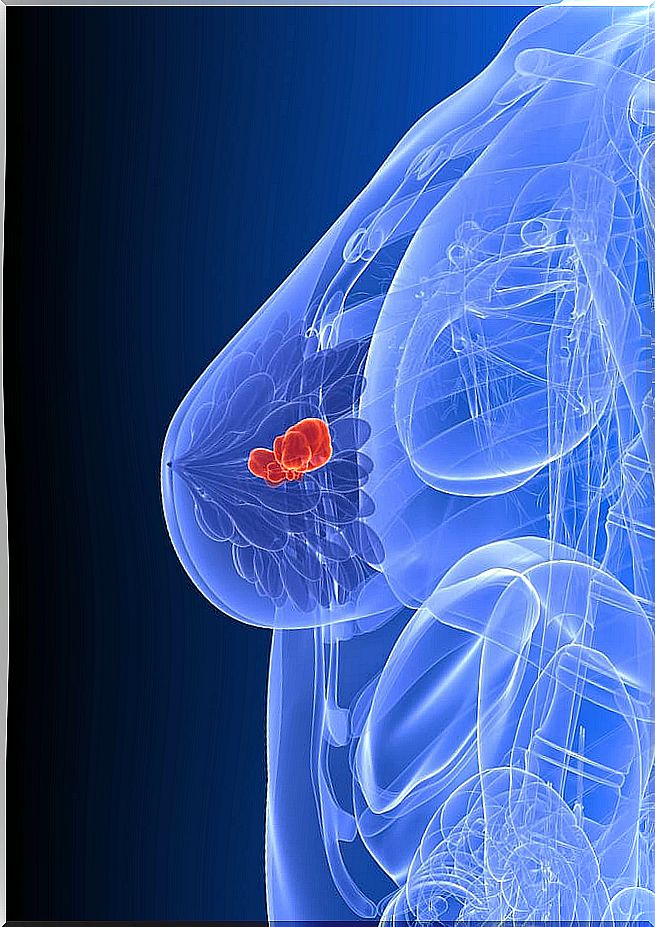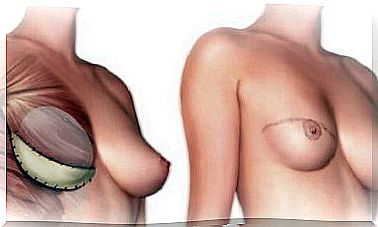Fulvestrant: One Of The Quintessential Hormonal Therapies
Fulvestrant is a drug that blocks estrogen receptors, one of the female sex hormones. It is used to treat some types of breast cancer that use estrogens to grow and multiply in the body. We know that most mammary neoplasms are dependent on estrogen stimulation, hence blocking these hormones is the main therapeutic strategy.
Recently, the use of targeted therapies together with hormonal therapy has been able to improve the results of advanced disease-free survival, with fewer side effects than those produced by conventional chemotherapy.
Hormone-dependent or RH + breast cancer

Breast cancer is the most frequently diagnosed type of neoplastic disease and the leading cause of death in women. Various studies have shown that most of these tumors are positive for estrogen and / or progesterone receptors.
Hormone receptor positive disease is also called RH + breast cancer. Its behavior is different from that of those neoplasms with negative hormone receptors or RH-. They differ mainly in terms of the evolution of the disease and the time and type of recurrence.
Patients with RH + tumors experience a constant lifetime risk of late recurrence as well as cancer-related death.
Current treatment of breast cancer in hormone-dependent tumors
Currently, the preferred option for the treatment of hormone receptor-positive breast cancer is hormone therapy, even if there is metastasis. Hormone treatment is determined, among other factors, by the patient’s menopausal status:
- Postmenopausal women : Most available therapies can be used.
- Premenopausal women : only tamoxifen is available. If the use of other treatments such as fulvestrant or aromatase inhibitors is required in these patients, suppression of ovarian function is necessary.
Current endocrine or hormonal treatment options include selective estrogen receptor modulators (tamoxifen), aromatase inhibitors, and negative regulators of estrogen receptor expression such as fulvestrant.
In addition to the menopausal status, the choice of the type of treatment will also depend on the use and response to previous therapies, disease-free time, expected toxicity, and tumor biology.
Fulvestrant as the third therapeutic strategy

The efficacy of fulvestrant was first demonstrated in the FIRST study, which showed that endocrine therapy might be more effective than an aromatase inhibitor in the first line of breast cancer treatment.
Another study known as FALCON 3 also compared an aromatase inhibitor and fulvestrant in breast cancer patients with non-visceral metastatic disease. Fulvestrant showed a significant benefit in progression-free survival, thus strengthening its efficacy.
There have been other studies that support the administration of fulvestrant with drugs that inhibit CDK 4/6, such as palbociclib. The PALOMA 3 study demonstrated that palbociclib is associated with significant benefit in patients with RH + breast cancer who have received prior treatment.
Mechanism of action of fulvestrant in the body
As we have explained, fulvestrant is an effective drug for the treatment of those breast tumors that have estrogen receptors. When tumor growth is stimulated by the effect of estrogen binding with cancer receptors, then this therapy is indicated.
Fulvestrant is an estrogen receptor antagonist drug. That is, it interacts with the receptor in the same place that estrogen molecules do. Therefore, it owes its effectiveness to its ability to bind, block, and degrade estrogen receptors.
Conclution
Despite taking giant strides in the fight against cancer, there are still many doors open and much to investigate.
The development of fulvestrant was undoubtedly a great advance in the treatment of this disease. Its potentiality when associated with palbociclib continues to be investigated.









